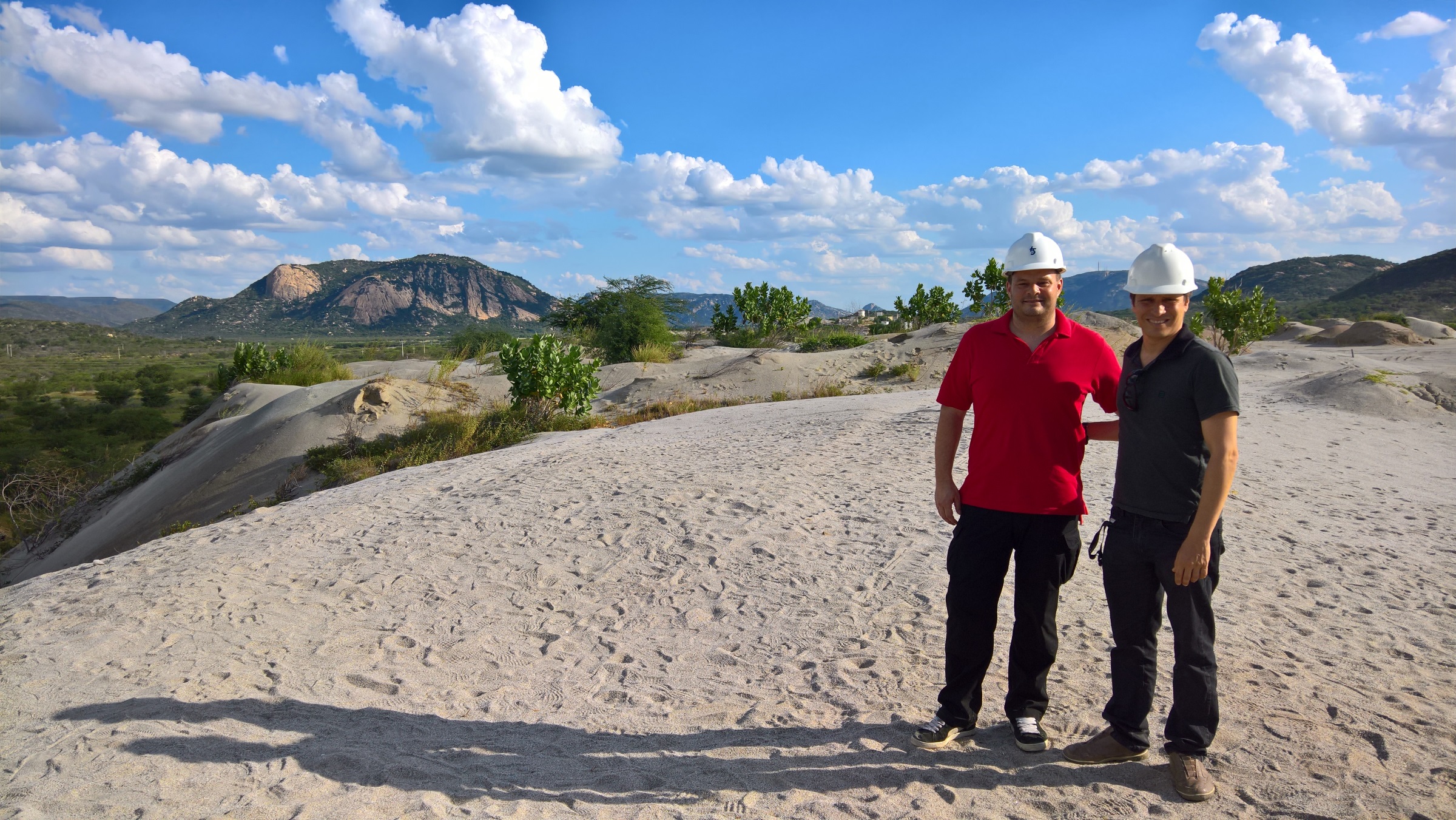ReWoRK: fieldwork resumed

Coordinator: Clausthal University of Technology, Clausthal Institute of Environmental Technologies (CUTEC)
Contact Person: Graduate Engineer Sven Schulze
Address: Leibnizstraße 23, 38678 Clausthal-Zellerfeld
Phone.: +49 5323 72-6271
Fax.: +49 05323 933-100
Email: sven.schulze(at)cutec.de
Project partners
Project partners in Brazil
The conventional extraction of tungsten is associated with significant environmental impact. Among other things, large amounts of material residues, which accumulate in large-scale and often contaminated material dumps, are produced with current production methods. These often contain high concentrations of tungsten, which, however, usually remain unused. The German-Brazilian project ReWoRK is researching the technological processing of the dump material for material recycling and would like to contribute to the conservation of natural resources as well as the reduction of the environmental impact of mining.
For a long time, tungsten ores such as scheelite have been processed exclusively by technological processes involving a considerable amount of unused material. This led to the accumulation and storage of immense amounts of fine-grained residues of processing material, so-called tailings. These often contain enough tungsten concentrations to be of economic and strategic importance. ReWoRK is working on process innovations for the development of resource-saving methods for tungsten recovery.

Today's systems often use processes that allow for significantly higher yields of the material. However, these systems have special site requirements, for example often require a large amount of water, which does not allow for economic operation in dry and arid regions. The processing of input materials with difficult compositions, for example with molybdenum content, is also not necessarily possible with these methods. Due to the lack of adapted processing technologies, older treatment processes and therefore lower material yield are still being used today at certain sites.
The ReWoRK project aims to close this research gap and provide suitable technologies for the extraction of previously unused tungsten content. To this end, the partner network covers the entire value chain from exploration of raw materials (BGR) through mines (MTS) and research facilities (CUTEC, UFRN, EEMA) to product production and recycling (HST). Brazilian and German partners are involved in the project.
The aim of the project is first to close the technological research gap for the treatment of the dump material. In the first step, dumps in Europe and Brazil will be explored and extensive samples taken. Further steps are process development in the laboratory, the production of tungsten ore concentrates with positive profitability forecast as well as the construction of a functional demonstration plant.
The project results are to be implemented in Brazil (Currais Novos), but also in other possible locations. For this purpose, the processing technologies for the production of tungsten ore concentrate will be installed directly at the mine sites. In Brazil, modernisation of the technology used up to now is also planned based on the project results. In Germany, on the other hand, adjustments are planned to process the obtained concentrates, if necessary. In the long term, the processing technologies developed can also contribute to increasing the efficiency of future tungsten mines at other sites.
By using secondary materials and increasing the yield in primary mining, it is possible to increase resource efficiency, thereby conserving natural resources. Due to the deconstruction of dumps, if additional by-products are recovered during reprocessing, released areas can be returned to another use or restored. Should there be further and possibly critical heavy metals in the spoil heaps, these could possibly also be removed from the material, thus preventing future environmentally relevant contaminations. With the use of tailings for tungsten extraction, further significant reduction in the environmental impact is to be expected, since the material is extracted and thus easily accessible, making elaborate mining unnecessary. But a reduction of the environmental impact is also to be expected by increasing the efficiency of primary mining.
From a strategic point of view, Germany's security of supply can be increased by broadening the available technologies and input materials for tungsten production.
